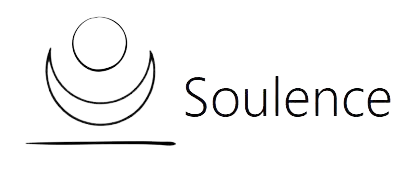I’ve been grieving a lot lately.
Grieving what is reaped from war. Grieving the effects of toxic power. Grieving religious institutions. Grieving a world on fire. Grieving the mind-numbing realities unfolding in hospital beds. Grieving the idols created by capitalism, Christian nationalism and White Supremacy.
Grief is a dear friend of mine. She’s the one who comes in with a broom and sweeps my house clean, throwing up the window sashes and waking me up to all the brutal realities I’m turning away from with the covers over my head. She’s a medicine woman.
This process of clearing puts me face-to-face with my conditioning and attachments, all the things that keep me from my truest, unconditionally beloved self. When I am cleaned out, I feel a sort of "fresh” presence, in a space of humility and fearlessly grounded. There’s nothing I’m trying to release, I am released. In that place, there is space for guidance.
The guidance that unexpectedly emerged in my heart the other day seemed so random. It was about that really popular starfish poem. You know, the one with the person who was walking along the beach and there were a bunch of starfish ashore and the tide was going out. The person kept picking up starfish and throwing them back in the ocean. Upon being questioned about the futility of these actions compared with the multitude of beached starfish, the person replied, “It mattered to that one.” Well, my heart was telling me that we had it wrong – it wasn’t about saving.
When I lingered with what was emerging, I acknowledged that this poem has been leveraged to condition people to be saviors - understanding that the world is something to be saved and we are the ones who need to save it. This perspective, however, does not acknowledge that the world is what we have made it and that we are making it in each moment. We are not the unattached white savior, but rather one with life around us. Perhaps what the poem really shows is that our attempts to fix the world will never be enough. Otherwise, we are missing the bigger picture. Instead of moving us away from our grief with each toss of a “saved” starfish, it reminds us that there is a “yes, and” - there is also so much to be grieved, dying upon the shore.
The poem is attributed to Loren Eiseley, an archeologist, anthropologist and naturalist who seemed to understand that to love the world begins within a person. He understood water to be magic. He had a connection with animals. From what I understand, he wasn’t focused on being a savior, but rather being present with the world he loved and the way he could love it. He understood that to become anything in this world, we must first allow ourselves to be fully human.
Part of being human is knowing Grief. Grief comes because she is a healer equipped with the medicine of tears and body shakes, and she somehow puts me more in touch with a deep knowing that I am held by something unconditionally loving and far more dependable than my grand notions of saving the world. She allows the pain to break my heart wide open so that I can hear it, feel it, and live from it more deeply. She asks me questions like, “Are you willing to live from love without presumption?”
That means I can also see the parts of myself that are hard to face, but from a place of love. I see that I am addicted to happy endings, another attachment to be released. This does not mean there is no hope in the world. Quite the opposite. Hope is something lived each moment we are willing to show up as fully loved beings, wanting for nothing more than to live from belovedness. No matter what. I am convinced that all starfish, living or dying, have no doubt that they are beloved. They have always and only ever been so. They were, all of them, already saved.
Untouchable Essence
by Laura Weaver
There is a place within that cannot be destroyed
by flood or fire, by bloodthirsty armies or devastating illness—
it this untouchable essence of us that quakes
with irrepressible light and bears the
intolerable weight of all that must be felt to awaken.
When I first remembered myself after surgery,
my own name strange, both of my breasts removed—
I did not feel loss nor grief,
but a love so ferocious it rolled through me like thunder,
bringing healing rain.
After that, came a knowing of my own wholeness
beyond any story, beyond any dismemberment—
this revelation of our luminous body
that remains intact in spite of all of our sacred shatterings.
And yes, now the landscape is unrecognizable—
yes, now, there is no old path to go back to—
yes, now there is the quivering arrow of this moment
piercing the heart—
the illusion of invulnerability stripped away,
laid bare to this truth.
And so it is. And so we are.
Before I came to this life,
I was shown this world from the distant shores of it—
and in that moment, I saw the full arc of my days here,
the exquisite range of this embodied dreaming.
Oh how beautiful, I cried. Oh how terrible.
Oh—This terrible beauty.
And the angel who guided me simply pointed and nodded, and said—Yes.
